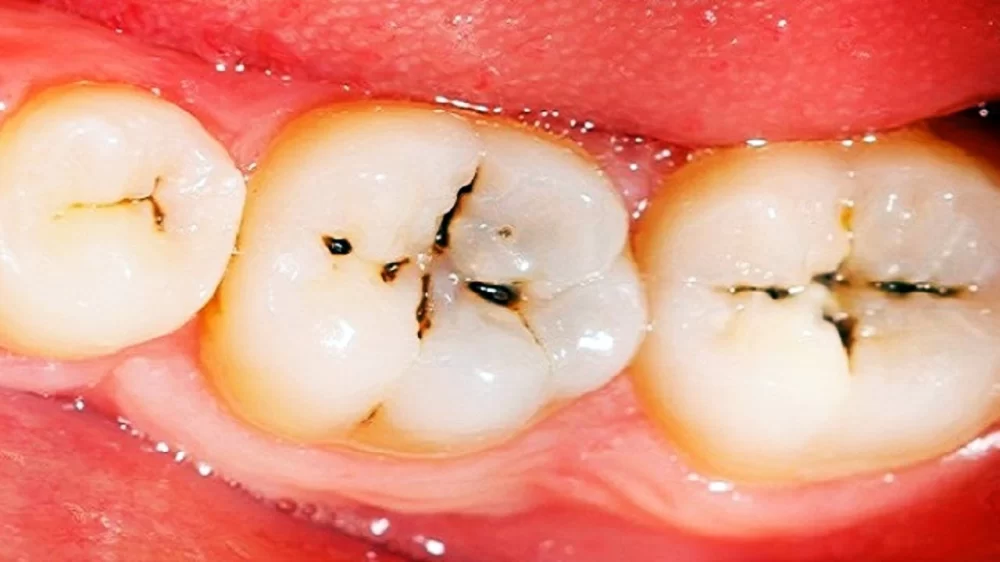
Signs That You Have a Cavity and Need to See a Dentist
- 1. Early Signs of a Cavity
- 2. Pain and Sensitivity as Cavity Symptoms
- 3. Visible Signs of Tooth Decay
- 4. Bad Breath and Metallic Taste
- 5. When to Visit the Dentist for a Cavity
For years, I didn’t think much about cavities. A dentist visit here and there, regular brushing, and a good diet seemed to keep things under control. However, after experiencing some pain and noticing a few changes in my teeth, I realized that there were clear signs indicating I had a cavity. The issue is, many people, including myself at the time, don’t always know what these signs are. Recognizing the early signs of a cavity can help prevent serious damage and more costly dental treatments down the road. Let me walk you through some of the common symptoms that suggest you may have a cavity and need to see a dentist.
1. Early Signs of a Cavity
One of the first indicators that I may have a cavity is a general sense of discomfort in my teeth. It can start out as something minor—an occasional dull ache that I might easily brush off. However, after experiencing this discomfort for several days, I realized that it was a clear sign that something was wrong. The pain would often worsen when I ate or drank something cold or sweet, which I later learned was a sign of tooth decay starting to set in.
What I’ve learned through my own experience and speaking with my dentist is that cavities often begin with subtle changes. A slight sensitivity to temperature changes, a lingering ache, or even a feeling of pressure can be early indicators of tooth decay. These signs are easy to ignore, but it’s essential to take them seriously before they progress into something more painful and difficult to treat.
2. Pain and Sensitivity as Cavity Symptoms
Pain is perhaps one of the most noticeable symptoms of a cavity. When I started feeling a sharp, sudden pain in one of my teeth, I knew it was time to pay attention. Tooth pain can vary from mild to intense, and it may be triggered by different factors such as chewing or consuming hot or cold food and drinks. This kind of discomfort typically occurs when the cavity has progressed deeper into the tooth, affecting the nerve endings.
Sensitivity to hot, cold, or sugary foods was another red flag that pointed to a cavity for me. If you’ve ever felt a sharp, sudden jolt of pain when drinking a cold beverage or eating something sweet, it’s likely a sign of enamel erosion and decay. I found that when this sensitivity lingers or gets worse, it’s a clear indicator that the cavity has reached a more advanced stage and needs attention from a dentist.
3. Visible Signs of Tooth Decay
Sometimes, it’s not just pain that signals a cavity but also visible changes in the appearance of your teeth. During my last check-up, my dentist pointed out small brown or black spots on the surface of one of my teeth. This was a telltale sign of decay. These spots often appear in areas that are harder to clean, such as between teeth or near the gum line, where food can get trapped.
In some cases, I noticed my tooth became noticeably discolored or chipped. Cavities, if left untreated, can eventually cause the tooth to break down further, leading to a hole or even a fractured tooth. If you notice any visible changes in your teeth, like spots, chips, or rough areas that weren’t there before, it’s time to see a dentist.
4. Bad Breath and Metallic Taste
Another less obvious, but equally concerning symptom of a cavity is bad breath or a persistent metallic taste in your mouth. I’ve experienced both of these signs when a cavity was forming. The buildup of bacteria in a decaying tooth can cause an unpleasant odor, which might linger even after brushing your teeth. If you notice that your breath smells sour or unusual despite regular oral hygiene, it may be due to a cavity.
In addition to bad breath, a metallic or unusual taste in your mouth can occur when food and bacteria get trapped in the cavity. This can be particularly noticeable when you wake up in the morning or after eating. These symptoms shouldn’t be ignored, as they often signal the presence of an active cavity that’s becoming more difficult to manage on your own.
5. When to Visit the Dentist for a Cavity
As soon as you notice any of the symptoms mentioned above, it’s important to schedule a visit to the dentist. For me, I learned the hard way that waiting too long can lead to more complicated procedures, like root canals or extractions, which could have been avoided with timely intervention. I now make sure to visit my dentist at least twice a year for routine check-ups and cleanings, which helps catch issues before they develop into serious cavities.
If you’re experiencing any of these symptoms—pain, sensitivity, visible signs of decay, or bad breath—it’s best not to delay treatment. A dentist can diagnose the severity of the cavity, offer solutions to restore your tooth, and prevent further damage. If you’re unsure of what to do, I highly recommend visiting a professional who can guide you through the process and provide the necessary care.
For more information on cavity prevention and how to protect your teeth, check out Dentistry Toothtruth. They offer valuable insights and expert advice on maintaining healthy teeth and preventing cavities.







 Kanwar Gill, BDS0.0 (0 review)
Kanwar Gill, BDS0.0 (0 review) Light Dental Studios of 6th Ave5.0 (19 review)
Light Dental Studios of 6th Ave5.0 (19 review) Art & Science Family Dentistry5.0 (202 review)
Art & Science Family Dentistry5.0 (202 review) Family & Spa Dentistry4.0 (178 review)
Family & Spa Dentistry4.0 (178 review) Kalil Dental Group4.0 (44 review)
Kalil Dental Group4.0 (44 review) Ocean Dental4.0 (141 review)
Ocean Dental4.0 (141 review) The Importance of Oral Health Education During Pregnancy for a Healthy Pregnancy
The Importance of Oral Health Education During Pregnancy for a Healthy Pregnancy Best Tips for Brushing Your Teeth Properly for Healthy Gums: Essential Techniques for Oral Health
Best Tips for Brushing Your Teeth Properly for Healthy Gums: Essential Techniques for Oral Health Why Skipping Dental Checkups Can Lead to Bigger Oral Health Problems
Why Skipping Dental Checkups Can Lead to Bigger Oral Health Problems Advantages of Porcelain Dental Restorations
Advantages of Porcelain Dental Restorations How Can Diabetes Cause Tooth and Gum Problems? Preventing and Managing Oral Health Issues
How Can Diabetes Cause Tooth and Gum Problems? Preventing and Managing Oral Health Issues Healthy Habits for Promoting Good Oral Health and Hygiene: Tips for a Healthy Smile
Healthy Habits for Promoting Good Oral Health and Hygiene: Tips for a Healthy Smile